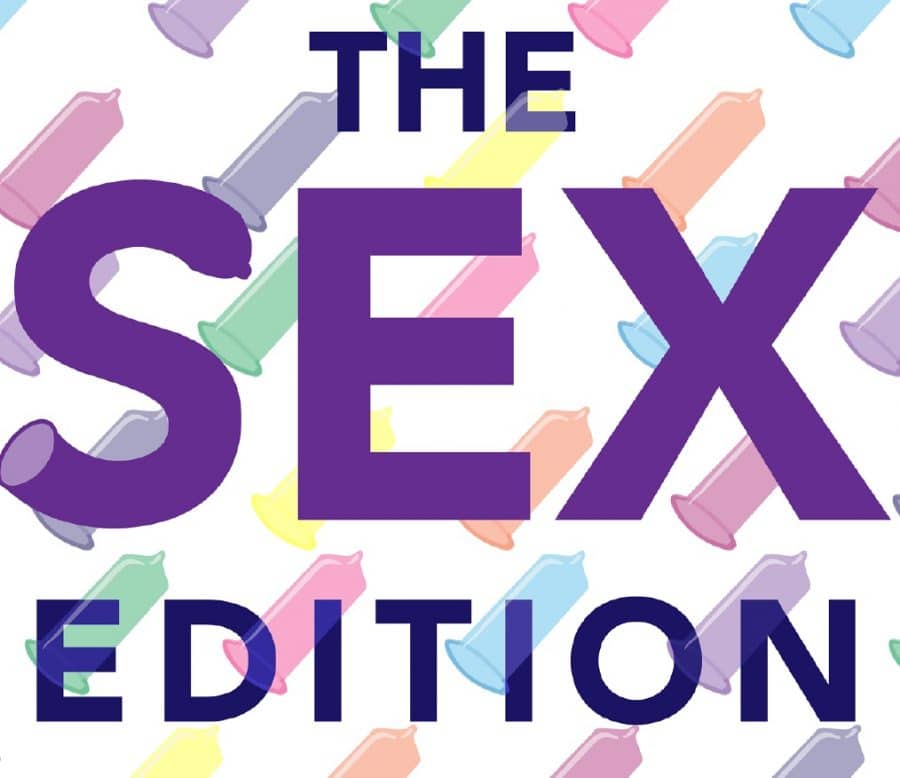Almost everyone has a story about the comically incorrect things we learned in sexual education. Having sex even once will forever decrease your ability to bond with people. Skin-to-skin contact anywhere from the knee to the bellybutton can give you HPV. Don’t have sex, or you will get pregnant and die.
While these stories are undoubtedly funny, they are telling of just how lacking our sexual education is, not only in Alabama, but all across America. When we fail to teach students what healthy and consensual sex looks like, we raise a generation woefully underprepared to deal with their own sexuality and the responsibilities that come with being sexually active.
At The Crimson White, we feel that it is important for students at the University to have an understanding of this, which is why we have devoted an entire issue to sex and all that it relates to, covering everything from BDSM to abstinence.
This is especially important given the current cultural moment. We have been incredibly, and rightfully, focused on how sex can be perverted and then used as a tool to harass, demean and injure both emotionally and physically. Of course, this is an incredibly important conversation. But it is also important to remember that sex can, and should, be healthy and fun.
For decades, we have failed to educate our students about that reality. Adults get understandably uncomfortable when discussions about teenage sexuality arise, and thus tend to only emphasize abstinence as a means of preventing unwanted pregnancy and STDs. Alabama is especially guilty of this, and our education codes reflect this: The number one fact mandated to be emphasized in Alabama sex education is abstinence, and it is repeated that abstinence is “the expected social standard for unmarried school-age persons.”
Anyone who has ever been a teenager knows that this is an unrealistic expectation, and anyone who has looked at sex education research knows that it is also an unhealthy one. It has been proven that abstinence-only sex education increases teenage pregnancy rates, yet many states stubbornly cling to this model due to outdated and often sexist beliefs about sexual purity and morality.
Instead of commanding teenagers not to do something that they very much want to do and probably will do anyway, pounding into their heads that sex is something sinful and wrong, we should instead give them comprehensive sex education about how to have healthy, consensual sex, and how they will know if they’re ready for that. This type of education in no way trivializes sex and its potential for negative repercussions. It would instead equip teens with all the information they need about methods of birth control, how to make sure both they and their partner are comfortable, ways they can minimize risk of STDs and so much more.
Comprehensive sex education will also ensure that students do not internalize negative beliefs about being sexually active. Many people, especially women, grow up hearing so often that sex is wrong and that having it will diminish their worth. When they start becoming sexually active, even if it is in a healthy relationship, they still feel as if they are doing something dirty and wrong because they have so long heard that it is. Comprehensive sex education will not only help students physically, but emotionally, too.
Sex education should not stop after high school health class, either. College students should continue learning about safe and healthy sex so that they can put these programs into place in their own lives. Additionally, colleges, namely this University, should continue outreach about sexual health and open up resources to students to ensure that they can be sexually active in a healthy way.
That means offering increased access to condoms and birth control at reduced or no cost and offering free and discreet STD screening to all students. College students are notorious for their tight budgets, and if the University truly wants to support its students, it will make certain that sexual health is financially possible for each and every student.
Despite what so many of us learned in sex ed, sex is a natural and enjoyable part of life, whether you’re having sex with everyone, no one, one person or something in between. Educational institutions across the country have an obligation to teach students this and prepare them adequately for being sexually active. If they do this, we can make sure that the only funny sex ed story anyone has is seeing a teacher put a condom on a banana.
Our View represents the consensus of the editorial board.







